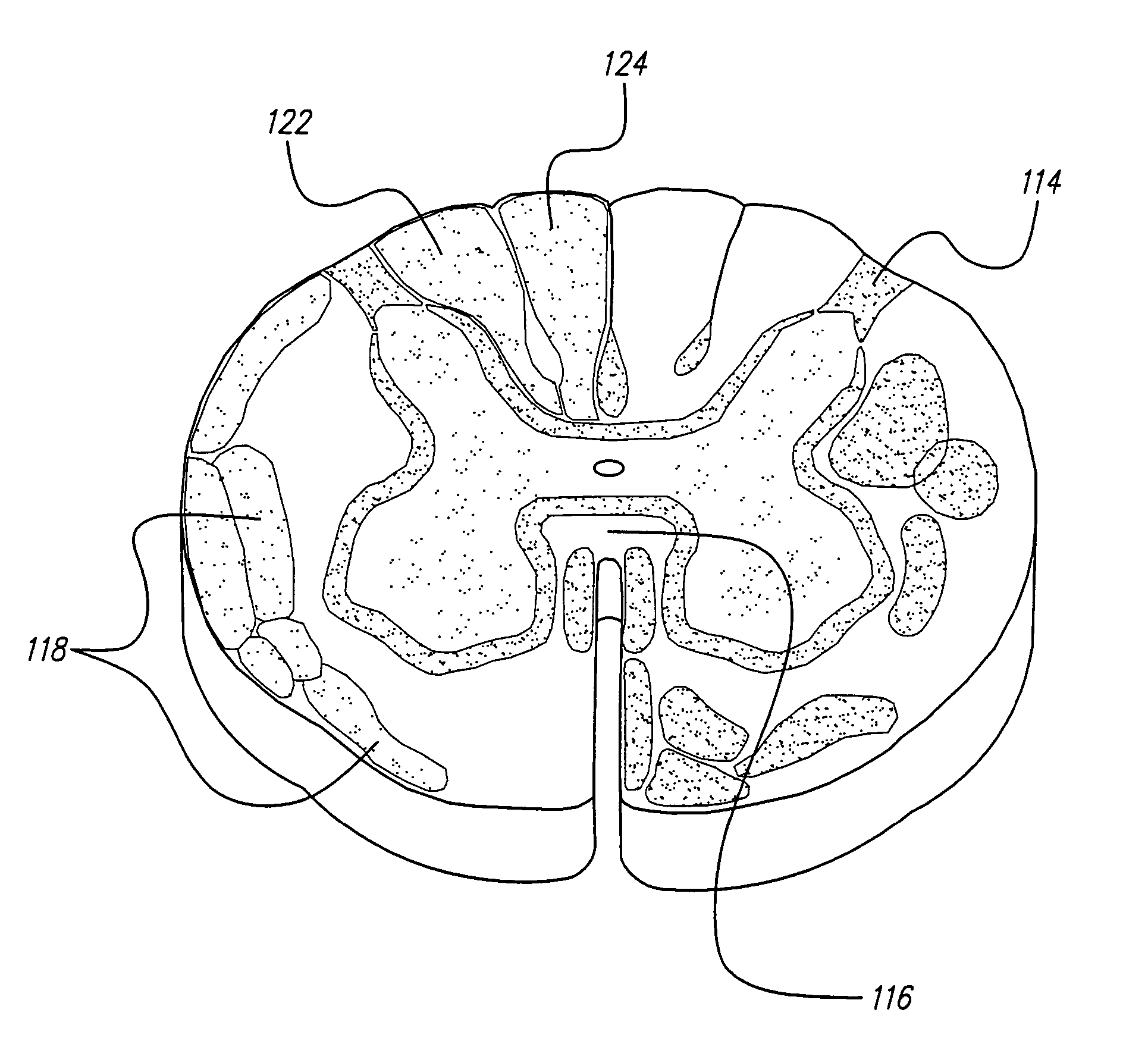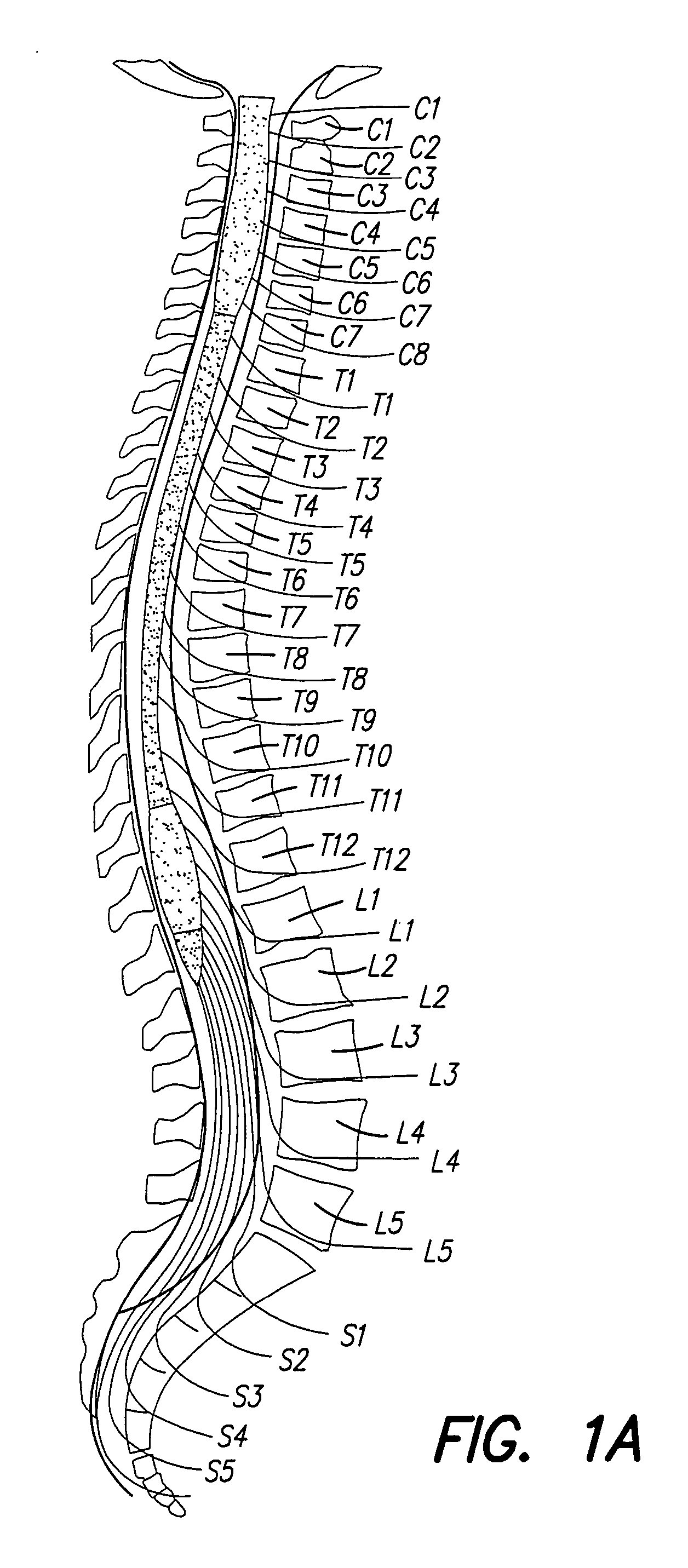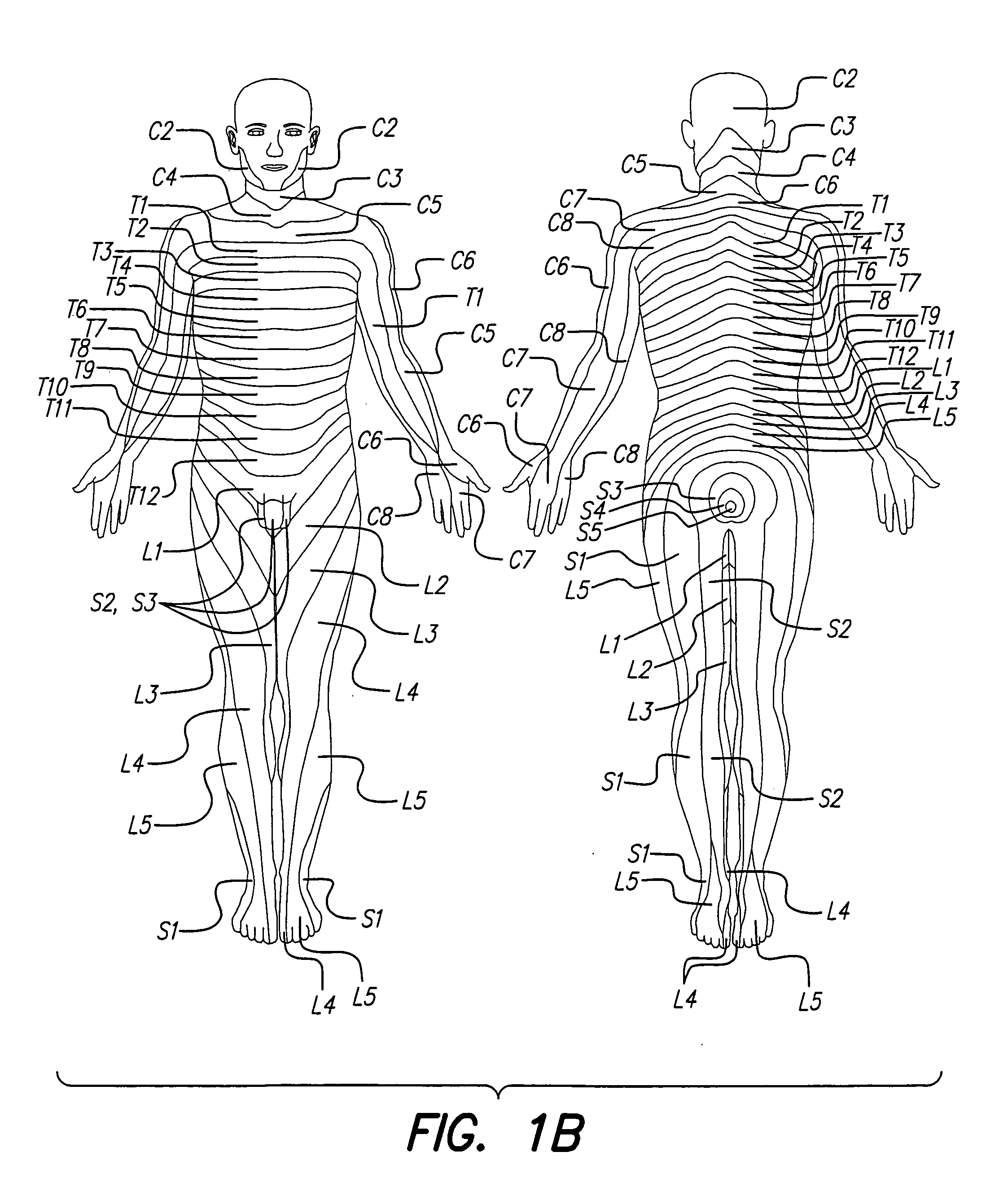Methods for implanting a spinal cord stimulator
a stimulator and spinal cord technology, applied in electrotherapy, therapy, etc., can solve the problems of tens devices producing significant discomfort, only being used intermittently, and only being able to produce significant discomfort, so as to reduce the cost and the opportunity of infection, the effect of minimal invasiveness and minimal surgical time and possible error
- Summary
- Abstract
- Description
- Claims
- Application Information
AI Technical Summary
Benefits of technology
Problems solved by technology
Method used
Image
Examples
Embodiment Construction
[0043] The following description is of the best mode presently contemplated for carrying out the invention. This description is not to be taken in a limiting sense, but is made merely for the purpose of describing the general principles of the invention. The scope of the invention should be determined with reference to the claims.
[0044] As indicated above, the present invention is directed to treating chronic pain using one or more small, implantable neurostimulators, referred to herein as “microstimulators”. The microstimulators of the present invention are preferably similar to the type referred to as BION™ devices. The following documents describe various features and details associated with the manufacture, operation, and use of BION implantable microstimulators, and are all incorporated herein by reference:
Application / Patent / Filing / Publi-Publication No.cation DateTitleU.S. Pat. No. 5,193,539IssuedImplantable MicrostimulatorMar. 16, 1993U.S. Pat. No. 5,193,540IssuedStructure ...
PUM
 Login to View More
Login to View More Abstract
Description
Claims
Application Information
 Login to View More
Login to View More - R&D
- Intellectual Property
- Life Sciences
- Materials
- Tech Scout
- Unparalleled Data Quality
- Higher Quality Content
- 60% Fewer Hallucinations
Browse by: Latest US Patents, China's latest patents, Technical Efficacy Thesaurus, Application Domain, Technology Topic, Popular Technical Reports.
© 2025 PatSnap. All rights reserved.Legal|Privacy policy|Modern Slavery Act Transparency Statement|Sitemap|About US| Contact US: help@patsnap.com



